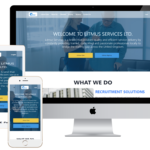Why you need to sleep more, – Even as a techie?
In the tech world, people often brag about working late into the night.
You’ll hear things like:
“I only slept 4 hours — I was up building all night.”
Late-night coding sessions, back-to-back hackathons, 2 a.m. breakthroughs gets celebrated often by those who burn the candle at both ends.
But here’s the uncomfortable truth:
If you’re constantly sacrificing sleep to push your career forward, you’re not moving faster — you’re slowly crashing.
For developers, engineers, designers, and startup founders, sleep isn’t just about avoiding eye bags or hitting pause. It’s a critical performance enhancer — one that affects your brain, your body, your creativity, and even your ability to work with a team
Not sleeping enough doesn’t make you a better developer. It makes you slower, more tired, and less focused.
Let’s break down why sleep is important for tech people — and how it helps you do better work, faster.
1. You’re Not as Sharp Without Sleep — Period

Sleep is when your brain organizes and optimizes everything you learned during the day. It’s where short-term memories become long-term knowledge — and where your mind gets the clarity to actually solve problems.
When you’re sleep-deprived:
- Your memory recall slows down.
- Your reaction time drops.
- Your decision-making becomes cloudy.
- You spend way longer fixing basic bugs.
It’s like trying to write clean code with a corrupted IDE. You might still ship, but the quality — and your confidence — takes a hit.
“Debugging while sleep-deprived is like trying to fix a leak in the dark — you’re more likely to break something else.”
2. Your Productivity Isn’t Real Without Sleep

Sleep helps your brain focus deeply. Without it, you find yourself:
- Re-reading the same line of code 5 times.
- Jumping between tabs.
- Getting distracted by every notification.
And while it may feel like you’re getting work done, your output drops — both in quality and quantity.
In fact, studies show that staying awake for 17–19 hours produces the same mental impairment as a blood alcohol level of 0.05%. That’s not just a dip in performance. That’s functionally impaired.
“Tired minds write bugs. Rested minds build systems.”
3. Creativity Comes From Rest

You can’t brute-force creativity.
The best ideas come when your brain has space — and that often means when you’re not actively thinking at all.
During REM sleep, your brain makes wild, unexpected connections between things you’ve recently learned or experienced. That’s where new ideas, cleaner architecture, and elegant solutions often emerge.
Ever wake up with the solution to a problem you couldn’t figure out the night before?
That’s not luck — that’s your brain doing overtime while you rest.
“Your subconscious is the best co-founder you didn’t hire — let it work while you sleep.”
4. Lack of Sleep Wrecks Your Mental Health
The tech world moves fast — and that pressure can take a toll. Constant deadlines, imposter syndrome, and workplace stress are heavy enough without running on empty.
Lack of sleep:
- Raises cortisol (stress hormone) levels.
- Lowers your emotional regulation.
- Increases the risk of anxiety and depression.
And when you’re mentally drained, you’re not just less productive — you’re also less patient with your teammates, more prone to conflict, and more likely to burn out.
“Protecting your mental health starts with protecting your rest.”
5. The Industry Moves Fast — But You’re Not a Machine
We glorify speed in tech — fast launches, fast commits, fast growth. But here’s the catch:
You’re not a bot. You’re a human with a body that needs time to recover.
Consistently skipping sleep leads to:
- Poor immune response (you get sick more)
- Weaker memory retention (you forget what you just read)
- Chronic fatigue (you feel “off” all the time)
What you think is being productive may actually be unsustainable.
And when you’re too burned out to continue, all the speed you thought you had evaporates.
“Success in tech is a marathon, not a hackathon.”
Practical Sleep Tips for Techies
If you’re ready to stop treating sleep like an optional add-on, here are a few ways to optimize it:
- Set a fixed sleep schedule — Go to bed and wake up at the same time every day (yes, weekends too).
- Unplug early — Cut off screens at least 30–60 minutes before sleep. Blue light confuses your brain into staying alert.
- Create a wind-down routine — Stretching, journaling, reading — anything that signals “it’s time to rest.”
- Optimize your room — Cool, dark, and quiet works best. Get blackout curtains, white noise apps, or even a sleep mask.
- Cut caffeine early — That 4 p.m. coffee may still be in your system at midnight. Stick to water or herbal tea in the afternoon.
Final Thoughts

Sleep isn’t a side quest. It’s part of the build.
You’re not proving anything by running on fumes. You’re just making everything take longer — and hurting your clarity while you’re at it.
The goal isn’t to always be online. It’s to be sharp when it counts.
So yeah, take that break.
Get some sleep.
Come back ready to move different.
Drop a comment and let me know how this hit you.
Whether you’re sleeping good or still stuck in the grind — I want to hear it.


